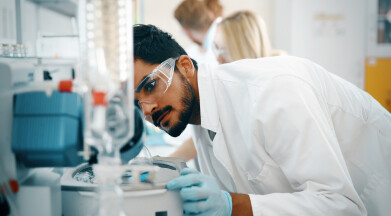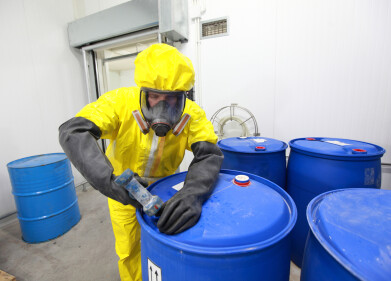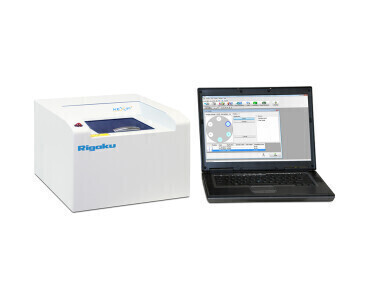Elemental analysis
How elemental analysis may become essential to a circular economy
Aug 08 2024
Each year, vast amounts of waste oil and related wastes are produced globally. When appropriately collected and processed, these wastes can be valuable, serving as energy sources or refined into usable products such as new lubricating oils. However, waste oil often contains contaminants like water, halogens, and heavy metals, making it potentially hazardous and subject to strict regulations regarding its handling, storage, and disposal.
Elemental analysis is crucial in ensuring the environmental safety and quality control of waste oil recycling. The primary techniques used in this industry are Energy Dispersive X-ray Fluorescence (ED-XRF) spectrometry and Inductively Coupled Plasma Optical Emission Spectrometry (ICP-OES). ED-XRF involves irradiating the sample with X-rays, causing the elements in the sample to emit fluorescent X-rays with unique energies. By measuring these energies and their intensities, the elemental composition of the sample can be determined. ED-XRF is beneficial for its ability to handle heterogeneous samples with minimal preparation and is often used for screening contaminants in waste oil. ICP-OES, on the other hand, involves ionising the sample with an inductively coupled plasma and then measuring the emitted light from the elements. This technique offers higher sensitivity and can handle complex matrices, making it suitable for more precise quantification of elements and for ensuring that processed fuels meet stringent regulatory standards. The applications of these techniques in waste oil recycling are diverse. They help in ensuring that the waste oil does not contain contaminants beyond the treatment plant's capacity, verifying that secondary fuels produced from waste oil meet regulatory standards, and assisting in the re-refining process by ensuring the quality of the recovered base oils.
The need for precise elemental analysis is becoming increasingly important as regulations tighten and the demand for high-quality recycled products grows.
With the rise of electric vehicles and electronic devices, the demand for lithium-ion batteries has surged, leading to a corresponding increase in the need for efficient recycling methods to recover valuable elements like lithium, cobalt, nickel, and manganese. The primary techniques for elemental analysis in battery recycling include ICP-OES and Inductively Coupled Plasma Mass Spectrometry (ICP-MS). These methods are essential for determining the yield and purity of lithium salts extracted from various sources, analysing the elemental composition of battery materials to ensure their quality before they are used in new batteries, and facilitating the recovery of economically valuable elements and ensuring that the materials meet industry standards.
Recycling batteries poses several challenges, such as the high cost of recovery processes compared to traditional mining. However, as the number of used batteries increases, economies of scale are expected to reduce these costs. Companies are developing advanced mechanical, hydrometallurgical, and pyrometallurgical methods to enhance the efficiency of metal recovery from spent batteries. Effective recycling of lithium-ion batteries not only helps in conserving finite natural resources but also minimises environmental pollution. By ensuring that recovered materials are of high purity and quality, elemental analysis plays a critical role in sustaining the supply chain for battery production and reducing the carbon footprint associated with battery disposal. So, elemental analysis may prove pivotal in the recycling of waste oil and batteries, contributing to environmental protection, regulatory compliance, and the advancement of a circular economy.
Digital Edition
PIN 26.1 Feb/Mar 2025
March 2025
Analytical Instrumentation - Elemental Analysis for Quality and Process Control at Refineries, for Lubricants and Wear Metals in Engine Oils - Synthetic Lubricants: New Developments - Scaling...
View all digital editions
Events
Apr 14 2025 Moscow, Russia
Apr 15 2025 Moscow, Russia
Apr 22 2025 Hammamet, Tunisia
Apr 22 2025 Kintex, South Korea
Solar & Energy Storage Summit 2025
Apr 23 2025 Denver, CO, USA



















